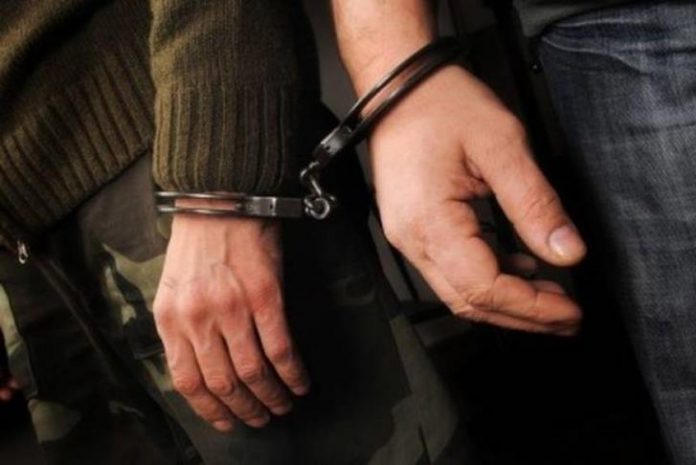This article has been written by Yash Singh.
Table of Contents
Abstract
Every individual across the country as well as at any part of the world has the right to be free. However, it’s quite common that an individual is underprivileged in his liberty by the action of any law implementing authority of the state and generally otherwise too. The key question is what happens if these restraints are without a reasonable cause; it violates the basic fundamentals of human rights bonded beneath the laws of nature as well as the Constitutions of the states. International organizations also are operating against this abuse of power by the states and have arranged sure directives in this regard.
The concept of the predominance of legal spirit in Rule of law has given the responsibility to the judicial bodies to protect and uphold the basic human rights of the citizens and ensure that the established due process of law is followed.
Introduction
“Freedom is not a gift bestowed upon us by other men, but a right that belongs to us by the laws of God and nature”. These words by Benjamin Franklin signify the importance of liberty and freedom. However, it is crucial to understand that these freedoms or liberties are not absolute and there are certain riders that can be imposed. But the riders should be in consonance with the due process of law otherwise it will infringe the human rights. It is also submitted that without an efficient guarantee of liberty and security the other human rights becomes very illusionary.
The Indian perspective
In India, the Constitution is the supreme law of the land and therefore we will begin with it. Article 21 provides that no person can be deprived of his life and liberty except by procedure established by law. Article 22 further consolidates the principle by providing safeguards against arbitrary arrest. It says that there are certain procedural requirements which are provided in statutes enacted by the legislature and they must be adhered to before restraining someone from his liberty. In case of a non-compliance of these requirements the restraint imposed is unlawful.
Now, we will shift our attention to the statutes which provide for these procedural requirements which must be complied. According to section 70 of the Code of Criminal Procedure, 1973, every warrant for an arrest issued by a court shall be in writing signed by the presiding officer of the court. This means that a warranted arrest is one which has the legal authority. So, where is the problem and in comes section 41which gives power to the police officer to arrest anyone without a warrant of the Magistrate on the basis of suspicion. This is been widely misused by the police forces, who has the task of being peace keepers and protectors against the evil. The Hon’ble Supreme court observed that “The National Police Commission in its third report referring to the quality of arrests by the police in India mentioned power of arrest as one of the chief sources of corruption in the Police”.
A statistic on this will clarify the picture. In 2014, police arrested 2,423 persons under section 66A of the IT Act, which allowed arrest and punishment for sending offensive messages. The section was subsequently struck down by the Supreme Court in the case of Shreya Singhal v. Union of India by giving reason that it is an excessive and arbitrary restraint on the right to liberty and freedom of expression which cannot be justified under the reasonable restriction clause of Article 19, yet the police made more than 3,000 arrest under the same section in the year 2015 knowing that that the section has been struck down.
The international mandate
The office of the United Nations High Commissioner for Human Rights (OHCHR) has published a study on “Human Rights in the Administration of Justice: A Manual for Judges, Prosecutors, and Lawyers”. Chapter 5 of the study deals with Human rights and arrests. According to this, unwarranted arrests are a cause of great concern against human rights across the whole world. It says that the arrests are being made without a reasonable cause and without any effective legal remedy available to the victim. It also explains the meaning of the word “arbitrary arrest” as: “‘arbitrariness’s not to be equated with “against the law “but must be understood broadly to include elements of inappropriateness, injustice, lack of predictability and due process of law”. This means that any custody in order to be a lawful arrest must not only be lawful but also reasonable in the circumstance otherwise it will violate Article 9(1) of the ICCPR.
Rights of an arrested person
Right to know the ground of arrest:
Article 22(1) provides that the arrested person has the right to know the ground of arrest as soon as possible so that he can prepare for his defense.
In Joginder Kumar v. State of U.P.the Supreme Court laid guidelines for investigation so that a balance between needs of police and human rights can be found. The court also held that mere suspicion is not enough but there must be same reasonable justification for the arrest.
Right to be defended by a lawyer of his own choice:
The constitution provides that every arrested person has the right to chose and elect his own lawyer to defend him in a court of law. The was not the case before the Maneka Gandhi decision as earlier a request was to be made to the court which may or may not get accepted. Finally, in Hussainara Khatoon v. Home Secretary, State of Biharthe court made free legal aid a fundamental right owing to Article 39A of the Constitution.
Right to be taken in front of a Magistrate
Article 22(2) provides that the arrested person must be produced before a Magistrate within 24 hours and if the same is not complied with, the arrest becomes wrongful detention.
Right to be released on bail
Section 50(2) of the Cr.P.C. provides that an arrested person can be released on bail after making arrangements of sureties and bonds.
Right to a free and truthful trial
Article 14 of the Constitution provides that every individual is equal before law which brings a natural corollary that all the sides in a case must be treated equally. The right to speedy trial though not given in the Constitution has been made apart of Article 21 by the Supreme Court in the case of Hussainara Khatoon v. Home Secretary, State of Bihar.
Conclusion
From all of the above-mentioned points, it is not difficult to conclude that an unwarranted arrest abridges or takes away the basic human rights of an individual and therefore provisions must be made to ensure that they do not form part of a civilized society as referred in the report of the National Police Commission.
LawSikho has created a telegram group for exchanging legal knowledge, referrals and various opportunities. You can click on this link and join:
 Serato DJ Crack 2025Serato DJ PRO Crack
Serato DJ Crack 2025Serato DJ PRO Crack











 Allow notifications
Allow notifications


